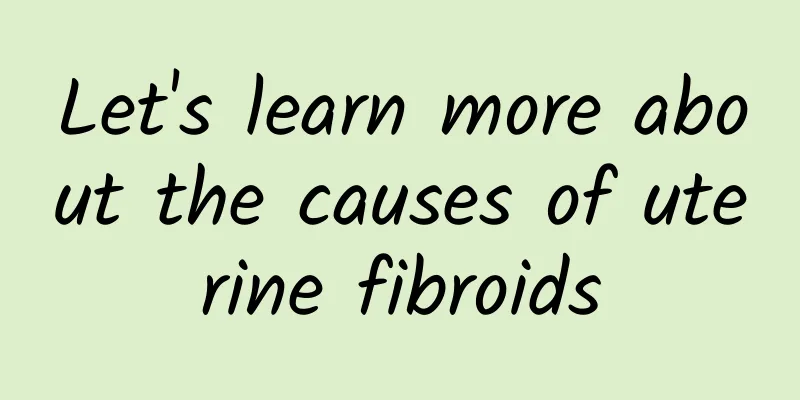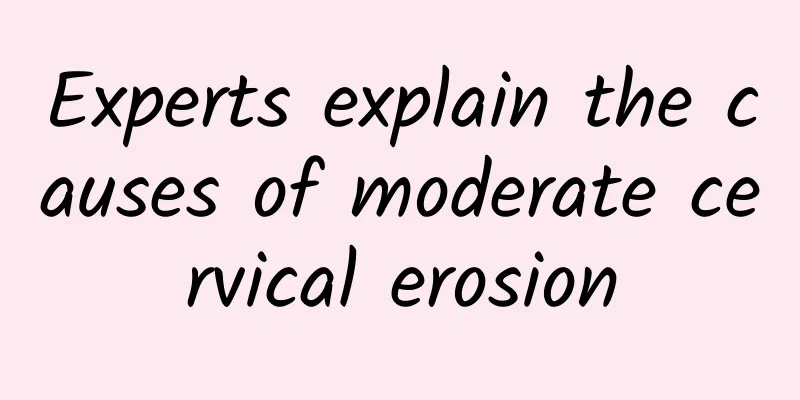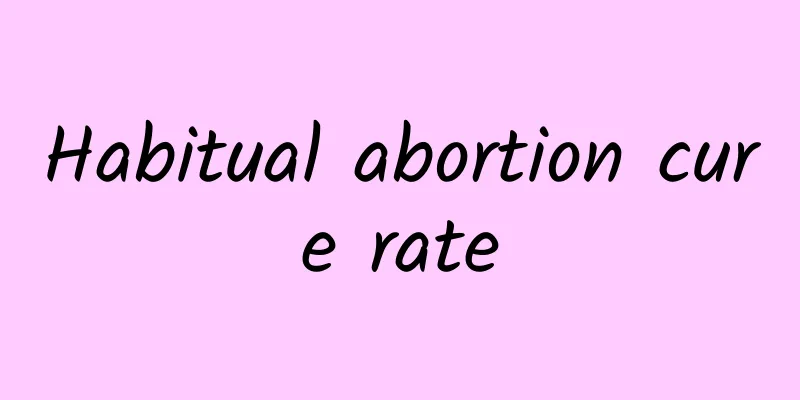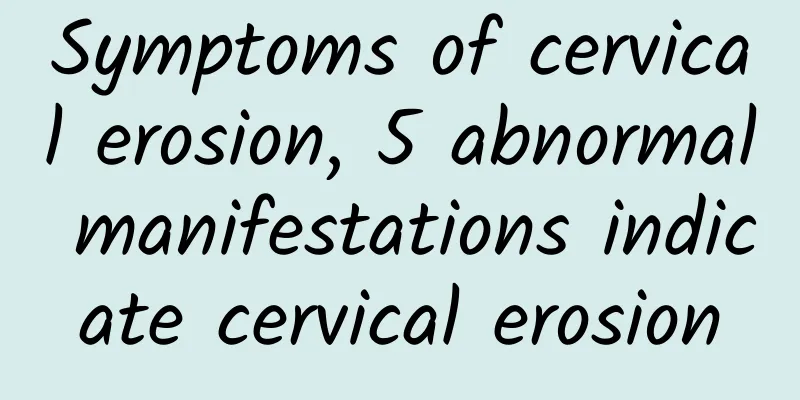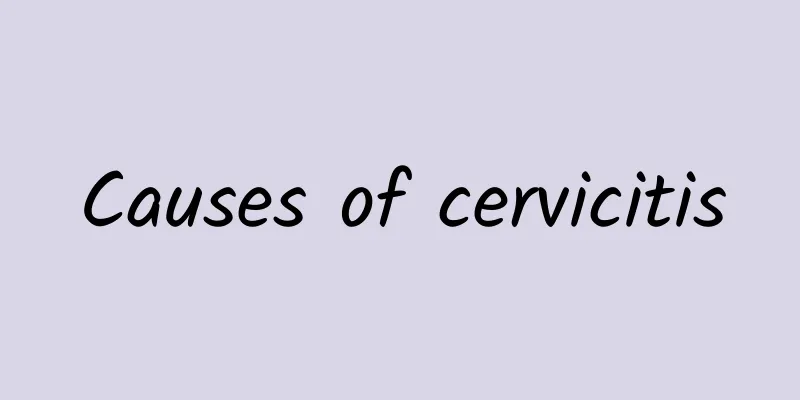What can menopausal uterine fibroids eat to cure menopausal uterine fibroids? How to treat menopausal uterine fibroids
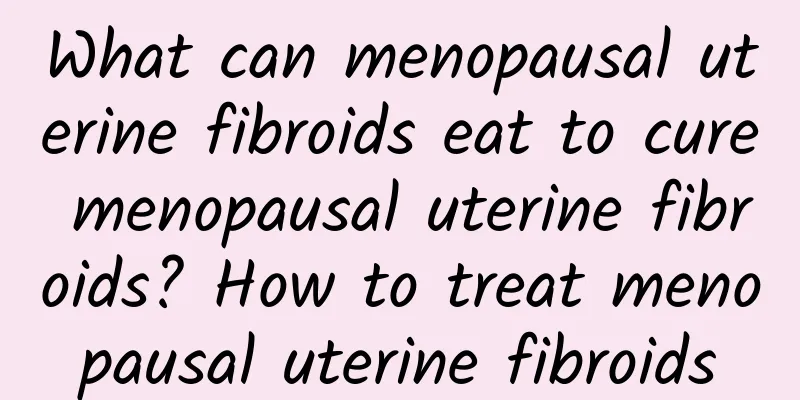
|
Menopausal uterine fibroids are a common gynecological disease, especially in menopausal women. So, how should patients with menopausal uterine fibroids be treated? What can be eaten to effectively improve the condition? There are many ways to treat menopausal uterine fibroids, including surgical treatment, drug treatment, and traditional Chinese medicine treatment. The specific method should be determined according to individual circumstances, so we should proceed under the guidance of a professional doctor. Surgery is a common treatment method. Surgery can completely remove uterine fibroids. If the patient does not plan to have another child, then hysterectomy is an effective way. This method can eradicate the lesion, reduce the impact of the tumor on the body, and completely solve the problem. Drug therapy is also a common method. Drug therapy can relieve symptoms and control the growth of tumors by regulating the patient's endocrine levels. For example, progesterone and dexamethasone can be used to temporarily stop the cyclical exfoliation of the endometrium, reduce bleeding and relieve pain. In addition, oral contraceptives can also play a role in controlling reproductive hormones and have a certain effect on reducing the growth of uterine fibroids. Traditional Chinese medicine treatment is also a feasible method. Traditional Chinese medicine believes that the occurrence of menopausal uterine fibroids is related to liver qi stagnation, qi and blood disharmony, etc. Therefore, through Chinese medicine conditioning, it can soothe the liver and regulate qi, promote blood circulation and remove blood stasis, and achieve the effect of treatment. For example, Chinese medicines such as Bupleurum, Alisma, and Lycium barbarum have certain therapeutic effects. For menopausal patients with uterine fibroids, it is very important to choose a treatment method that suits them. During the treatment process, balanced nutrition is also an important factor. So what should menopausal patients with uterine fibroids eat to improve their condition? Patients with menopausal uterine fibroids should eat more foods rich in fiber, such as vegetables and fruits. These foods can help promote intestinal peristalsis, reduce constipation, and accelerate the excretion of harmful substances. In addition, foods rich in magnesium can also help alleviate the condition, such as green leafy vegetables, beans and whole grains. Foods rich in vitamins C and E are also very beneficial for menopausal patients with uterine fibroids. Vitamin C can enhance the function of the immune system and promote the absorption and metabolism of uterine fibroids. Vitamin E can reduce inflammatory responses and prevent the development of uterine fibroids. The treatment of menopausal uterine fibroids should be based on individual circumstances. At the same time, it is also necessary to pay attention to a balanced diet and consume more foods rich in fiber, magnesium, vitamins C and E. I hope every patient can recover soon! |
>>: What should I not eat if I have uterine fibroids? Is uterine fibroids okay after the age of 45?
Recommend
Contraindications for radiotherapy in the treatment of uterine fibroids
Uterine fibroids are the most common benign tumor...
Eat fruit yogurt or milkshake for breakfast, be careful not to gain weight! 6 High-Sugar Breakfast Landmines to Avoid
Busy office workers always eat breakfast in a hur...
Recommended medication for amenorrhea in women
Amenorrhea is a common endocrine disease in women...
How to prevent cervical erosion?
Cervical erosion is a gynecological disease. Many...
The dangers of taking emergency contraceptive pills right after menstruation
Taking emergency contraceptive pills when menstru...
How to check cervical warts?
Cervical warts are currently a very serious sexua...
How to effectively treat dysmenorrhea?
As social competition becomes increasingly fierce...
Let's learn about the prevention of cervical hypertrophy
The knowledge related to preventing cervical hype...
Lost 15kg in 2 months, became a "Princess Taiping" due to emotional setbacks
Women who suffer emotional setbacks often lose th...
What factors can cause pelvic inflammatory disease
What factors may cause pelvic inflammatory diseas...
How long will it take for the last three pills of abortion to fall out? It depends on the specific situation.
After taking the last three pills of misoprostol,...
So warm! Drink the mature red-feathered chicken soup
The autumnal equinox has passed and the weather i...
How to remedy contraceptive failure and what are the precautions after miscarriage?
If contraception fails, you can take emergency co...
What are the methods of Western medicine for treating pelvic peritonitis?
Pelvic peritonitis is a common disease that often...
Do you know the dangers of painless abortion?
Painless abortion, literally means an abortion wi...
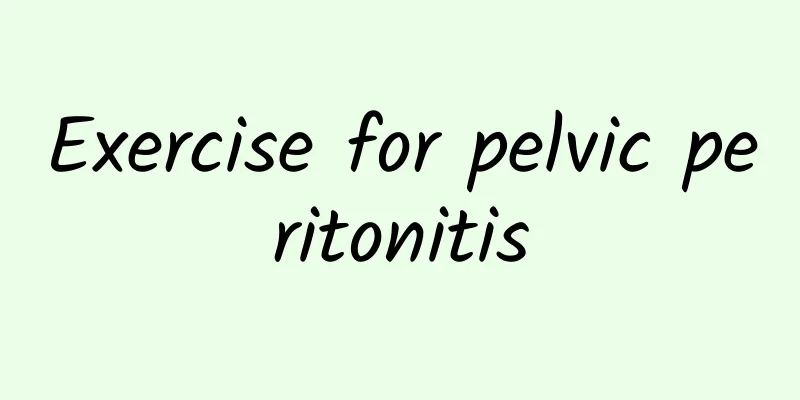

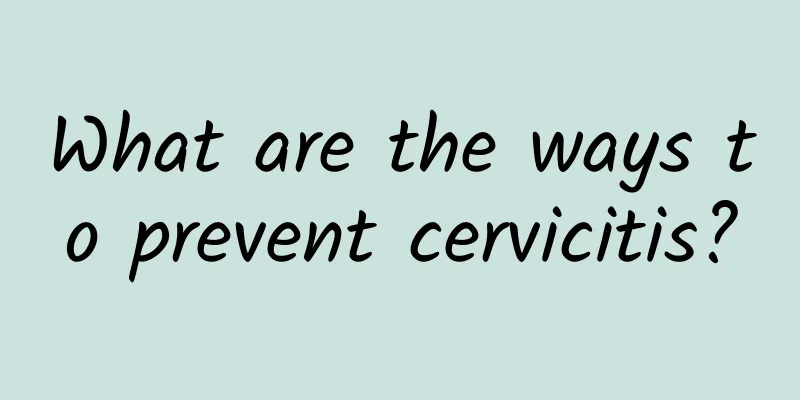

![[Video version] This exercise is essential to increase immunity during the epidemic!](/upload/images/67dcf8e833ca2.webp)
